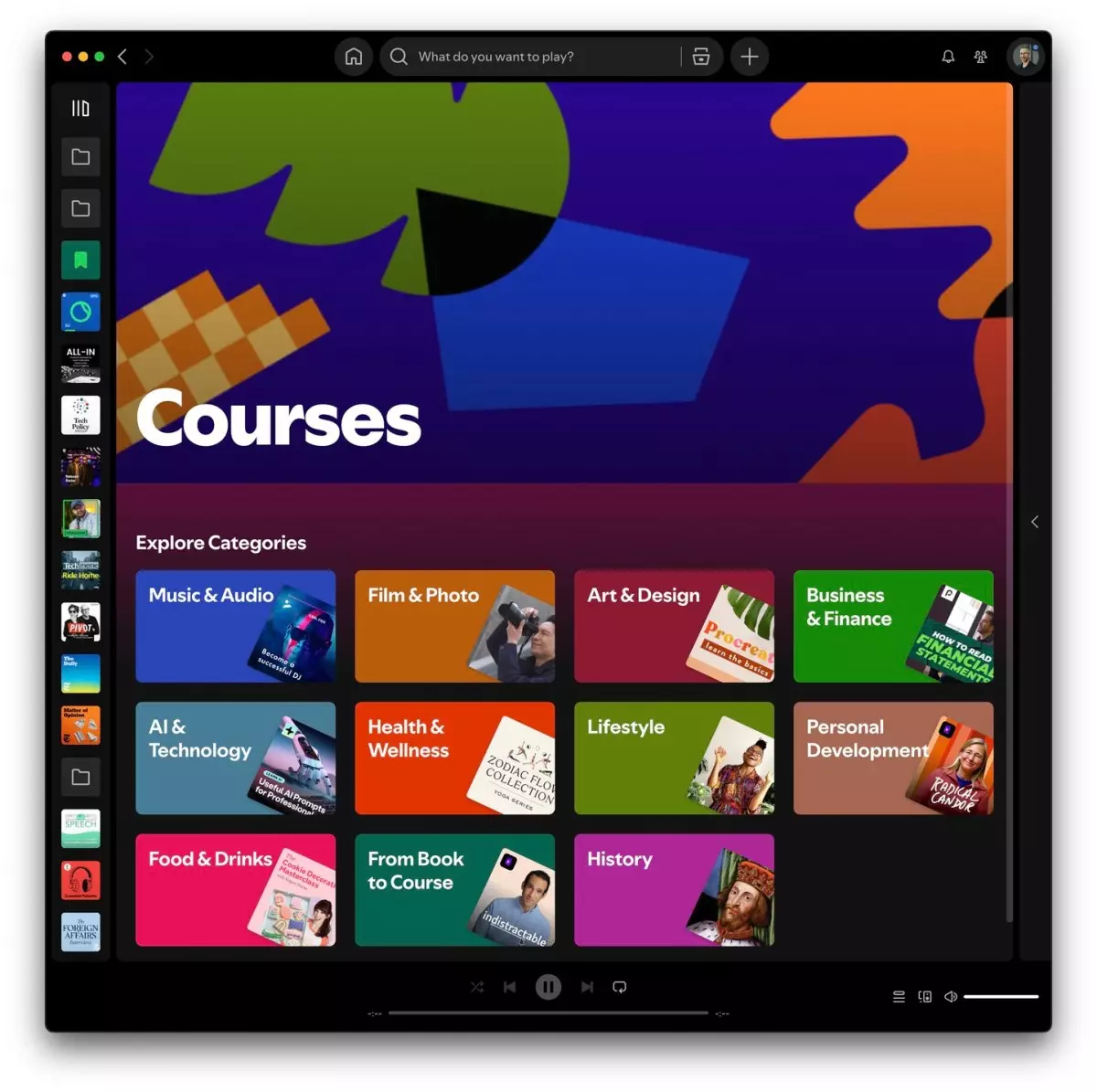Spotify has made a significant leap beyond its core offerings of music, podcasts, and audiobooks by introducing educational courses to its platform. This strategic move represents not only a response to the evolving digital landscape but also a deliberate effort to diversify revenue streams. Announced on a Tuesday, the new feature caters initially to users in the United Kingdom, emphasizing Spotify’s commitment to being recognized as more than just a music streaming service. This diversification could enhance user engagement and provide learners an opportunity to expand their knowledge seamlessly alongside their usual audio content.
The introduction of courses allows Spotify to tap into the burgeoning market for online learning and professional development, covering various topics such as business, technology, and lifestyle. By including educational content, Spotify positions itself against traditional learning platforms, offering an auditory method of education that appeals to users who prefer multitasking or who find traditional learning environments less accessible. This expansion could prove lucrative if the service introduces both paid and ad-supported versions of courses in the future. Moreover, Spotify’s strategy could reshape consumer habits, encouraging users to associate the platform not just with leisure but also with personal and professional development.
Spotify’s maneuver into the educational sector comes amidst stiff competition. With a notable attempt to undercut Audible, which is recognized as the market leader in audiobooks, Spotify offers a standalone subscription for audiobooks at a competitive price of $10 per month. This pricing strategy is aimed at attracting subscribers who may currently favor other platforms. While this localized focus on user base expansion is commendable, its long-term success will depend on how well Spotify can differentiate itself in terms of content quality and breadth of topics within its newly launched courses.
A key figure in tech, Chris Messina, had insights into Spotify’s courses ahead of the official launch, highlighting the importance of community and feedback in innovation and development. Messina pointed out that prospective courses on cutting-edge topics such as artificial intelligence and the metaverse could cater to a tech-savvy demographic, potentially luring in a new audience. The opportunity for users to filter their library specifically for “Podcasts & Courses” illustrates an intuitive user experience that could enhance navigation and retention.
While Spotify has yet to confirm the arrival of educational courses in the U.S. market, early findings from Messina indicate a level of accessibility that suggests ongoing development. This proactive engagement with industry innovations indicates Spotify’s commitment to adapting its platform to meet the changing needs of its users. The question remains: can Spotify successfully integrate educational offerings into its ecosystem in a way that maintains the high standards of user experience and content delivery that customers expect?
Spotify’s venture into educational streaming is a promising yet challenging endeavor that could redefine its role in the digital landscape. As the platform continues to innovate, it will be crucial to observe how it balances its expanded offerings while remaining a competitive audio streaming powerhouse.

